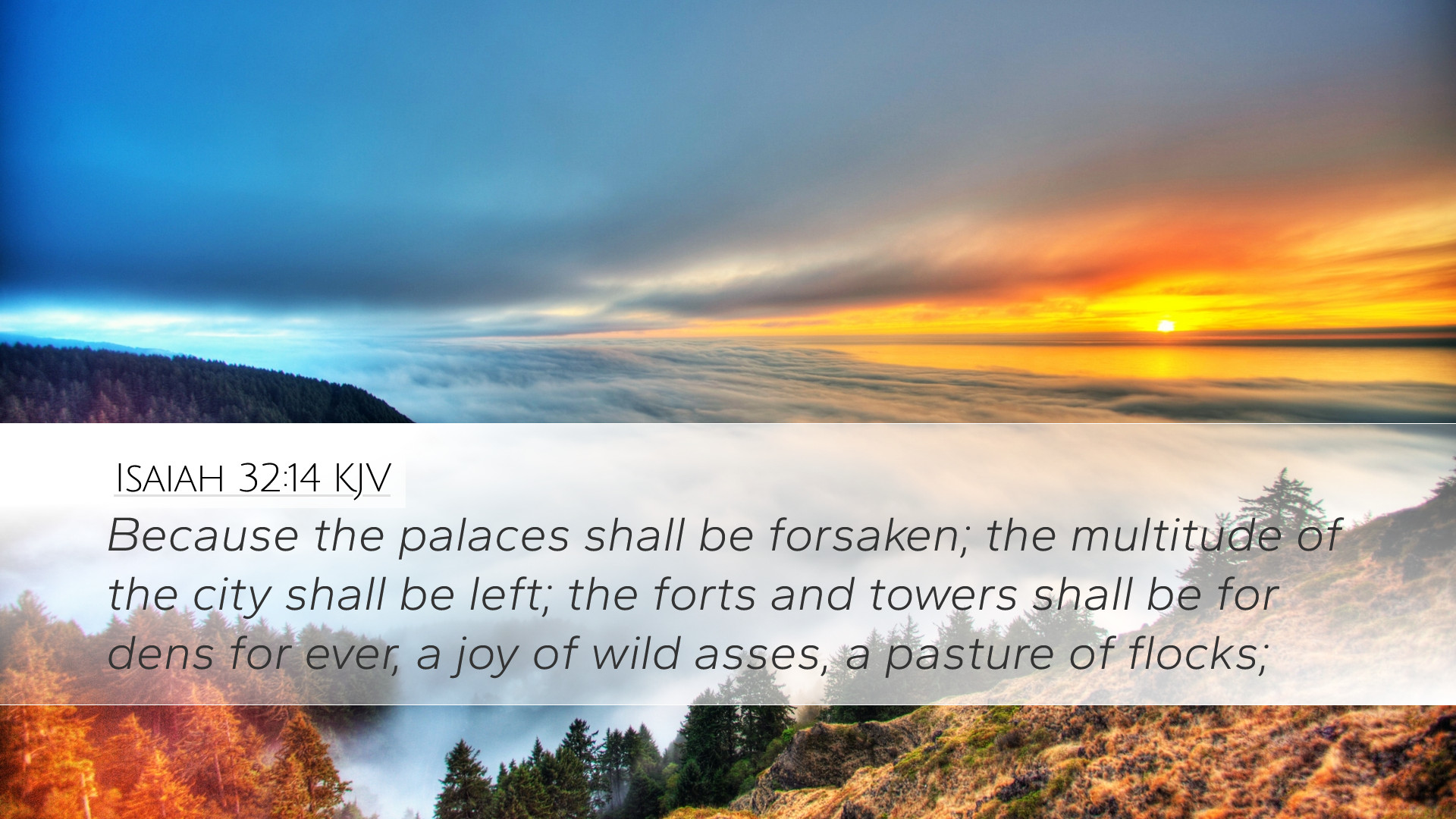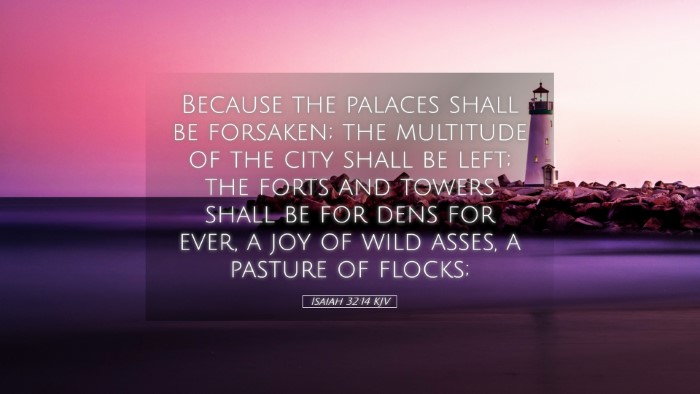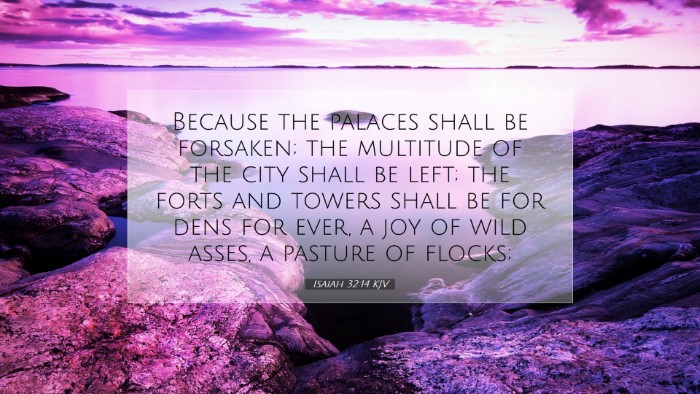Commentary on Isaiah 32:14
Verse Text: "For the palace shall be forsaken, the populous city shall be deserted: the forts and towers shall be for dens forever, a joy of wild asses, a pasture of flocks;" (Isaiah 32:14, KJV)
Introduction: The passage of Isaiah 32:14 presents a vivid depiction of desolation, reflecting the consequences of moral and spiritual decay within the society of Judah. The imagery conjures a future where once-thriving places become abandoned, drawing attention to God's judgment amidst human rebellion.
Contextual Background
To fully grasp the significance of Isaiah 32:14, it is essential to recognize the historical and prophetic context in which it was written. During the reign of King Ahaz and the impending threat of Assyrian invasion, Isaiah’s prophecies function as both warnings and assurances. This chapter, in particular, addresses a transition from oppression to eventual restoration, setting the stage for this stark lament over desolation.
Verse Analysis
1. The Palace Forsaken
Matthew Henry notes that the "palace" symbolizes the seat of power and authority, representing the failure of leadership that leads to societal collapse. The forsaking of the palace indicates divine abandonment and a withdrawal of God's favor.
2. The Populous City Desolate
Henry describes the "populous city" as a once-thriving community now rendered desolate due to judgment, illustrating the severity of Israel's spiritual condition. The wealth of the city and its inhabitants becomes useless in the face of God’s judgment.
Spiritual Implications
Albert Barnes articulates that the desolation foretold serves as a sobering reminder of the consequences of sin, emphasizing that societies devoid of righteous living and divine guidance ultimately invite ruin upon themselves.
Imagery of Abandonment
1. Dens for Wild Asses
The imagery of "dens forever" evokes a sense of the wild and unrefined taking over what once belonged to civilization. Adam Clarke notes that this reflects not only physical abandonment but also a spiritual desolation where the noble aspects of society are usurped by chaos and lawlessness.
2. Pastures for Flocks
The mention of "a pasture of flocks" suggests a return to a primitive order, where things revert to basic existence devoid of culture or civilization. This points to the reduction of human achievement and aspirations in the face of divine retribution.
Theological Reflections
Each element in this passage serves a dual purpose, warning of impending judgment while simultaneously confirming the sovereignty of God. The desolation symbolizes the broader theological theme that God’s will prevails over human affairs, underscoring the critical essence of repentance and humility before God.
Applications for Today
Pastors, theologians, and students of the Bible should reflect upon the themes of leadership failure, societal decay, and the consequences of ignoring divine warnings presented in Isaiah 32:14. There is a profound call to faithfulness in our communities and to uphold righteousness lest we face similar desolation.
- Call to Leadership: Leaders must cultivate spiritual integrity and seek divine guidance to prevent the fate of ruin as depicted in the verse.
- Community Responsibility: There is a collective responsibility for moral clarity and ethical living in communal and national contexts.
- Hope of Restoration: Amidst judgment, Isaiah also contains messages of hope and restoration, reminding us that God’s grace is available to those who turn back to Him.
Conclusion
The desolation captured in Isaiah 32:14 serves as a timeless warning of the consequences that result from turning away from God. As students of Scripture, we are called to apply these lessons, recognizing the cyclical nature of sin, judgment, and the need for restoration. The echoes of historic judgments serve to inform our present spiritual condition, urging us towards repentance and comprising an earnest prayer for revival both personally and collectively.


